- Home
- Joel Goldman
No Way Out (2010)
No Way Out (2010) Read online
NO WAY OUT
ALSO BY JOEL GOLDMAN
The Dead Man
Shakedown
Deadlocked
The Last Witness
Cold Truth
Motion to Kill
NO WAY OUT
JOEL GOLDMAN
PINNACLE BOOKS
KENSINGTON PUBLISHING CORP.
www.kensingtonbooks.com
For my nieces and nephews,
Jessica, Ariel, Michael, Josh, Elise, and Jacob.
Make sure your parents buy you a copy.
ACKNOWLEDGMENTS
Thanks to Nancy Leazer, superintendent of the Kansas City Municipal Jail, aka the Farm, for giving me a tour and explaining how she and her staff made a difficult job seem so easy.
Thanks also to Anne Rosenthal for telling me that the moon is pink. Though she insists that it isn’t what she said, it is what I heard and nothing could make the point better than that. And, thanks to Joe Rosenthal for taking me to gun shows and answering my questions about guns.
I never do anything worthwhile without the love and support of my wife, Hildy, and this book is no exception.
My agent, Meredith Bernstein, and my editor, Audrey LaFehr, as always, were generous with their praise and honest with their criticism, making this a better book.
Contents
Chapter One
Chapter Two
Chapter Three
Chapter Four
Chapter Five
Chapter Six
Chapter Seven
Chapter Eight
Chapter Nine
Chapter Ten
Chapter Eleven
Chapter Twelve
Chapter Thirteen
Chapter Fourteen
Chapter Fifteen
Chapter Sixteen
Chapter Seventeen
Chapter Eighteen
Chapter Nineteen
Chapter Twenty
Chapter Twenty-one
Chapter Twenty-two
Chapter Twenty-three
Chapter Twenty-four
Chapter Twenty-five
Chapter Twenty-six
Chapter Twenty-seven
Chapter Twenty-eight
Chapter Twenty-nine
Chapter Thirty
Chapter Thirty-one
Chapter Thirty-two
Chapter Thirty-three
Chapter Thirty-four
Chapter Thirty-five
Chapter Thirty-six
Chapter Thirty-seven
Chapter Thirty-eight
Chapter Thirty-nine
Chapter Forty
Chapter Forty-one
Chapter Forty-two
Chapter Forty-three
Chapter Forty-four
Chapter Forty-five
Chapter Forty-six
Chapter Forty-seven
Chapter Forty-eight
Chapter Forty-nine
Chapter Fifty
Chapter Fifty-one
Chapter Fifty-two
Chapter Fifty-three
Chapter Fifty-four
Chapter Fifty-five
Chapter Fifty-six
Chapter Fifty-seven
Chapter Fifty-eight
Chapter Fifty-nine
Chapter Sixty
Chapter Sixty-one
Chapter Sixty-two
Chapter Sixty-three
Chapter Sixty-four
Chapter Sixty-five
Chapter Sixty-six
Chapter Sixty-seven
Chapter Sixty-eight
Chapter Sixty-nine
Chapter Seventy
Chapter Seventy-one
Chapter Seventy-two
Chapter Seventy-three
Chapter Seventy-four
Chapter Seventy-five
Chapter Seventy-six
Chapter One
Eldon Fowler’s Ruger Redhawk .44 Magnum revolver was missing. He was certain it had been lifted on the last day of the gun show, some asshole rewriting the Second Amendment to include a right to steal arms. Didn’t matter. It was gone, and there was nothing he could do about it now except curse getting too old to protect what was his from some punk.
That, and file an insurance claim, which meant making a police report and turning over records to the cops that the government had no right to force him to keep in the first place as far as he was concerned, which was why he didn’t have the papers. Better to let the Redhawk go than have to deal with those bastards.
He’d set up three U-shaped tables under a banner he’d paid good money for that read ELDON FOWLER’S GUNS at the Expocentre in Topeka, Kansas, laying out a hundred and six semiautomatic assault rifles and fifty-two handguns for the Labor Day weekend show. For three days, he’d sat on a high bar stool with a swivel seat to keep an eye on everything, climbing down to talk only if a customer showed real interest, with the off-duty cops providing security to back him up, and still, he’d been robbed.
The Redhawk had been in the middle of a spread of new and used handguns, including Glocks, Smith & Wessons, Berettas, and Sig Sauers; another professionally made sign advertising them as the best in personal protection. It was a beefy gun that thrived on hot magnum loads, a gun he just had to have the instant he saw it in a pawnshop in Oklahoma two years ago. He was a shooter, not a hunter, and sometimes all he wanted was to feel the power of a gun in his hand. No gun did that for him like the Redhawk. And now it was gone.
More than six thousand people had come to the show. There were more lookers than buyers, one run-down man poor-mouthing him earlier in the day.
“C’mon Eldon, give me a break,” the man said, reading his name on the banner, acting like they knew each other and crying about hard times when Eldon wouldn’t sell him the Redhawk for less than Eldon had paid for it. Eldon had priced it too high to sell even in good times, just wanting to show it off.
“No, sir,” Eldon told him, grinding his tobacco chew, spitting in a cup. “Your troubles are not my troubles. I’ve got plenty of my own.”
“You act like you don’t even want to sell it,” the man said.
Eldon shook his head. Pathetic, that’s what the man was. “I’d rather pack up my whole inventory than give a single goddamn piece away. You can’t afford it, don’t buy it.”
Another customer had called to Eldon from the next table over, and Eldon left the man behind. He didn’t notice the Redhawk was missing until he began packing his inventory that night after the show had ended. He couldn’t prove the man had stolen the Redhawk, but no one would ever convince him that he hadn’t.
He was in the empty parking lot at the Expocentre, the last dealer to leave, the back end of his four-by-eight trailer open, assault rifles, each in a soft case, packed in canvas bags, his name stitched on the bags and the bags suspended on hooks lining the trailer walls. The handguns were on trays, the trays fitted inside two footlockers. He’d sorted through them three times, checking the guns against his inventory sheet, confirming again and again that the Redhawk was gone, slamming the trailer door closed, turning when he heard the low rumble of an approaching gray Dodge Ram pickup truck.
The driver slowed, giving him a nod, a ball cap pulled low, hiding his face. Eldon didn’t recognize the man or his truck, and that was what bothered him. Neither belonged in the parking lot this long after the show had ended.
The men who sold guns at these shows traveled a circuit, knew one another, what beer they liked, what they drove, and which marriage they were on. There were regular customers, too. People who followed them from show to show like a woman he once knew that followed Elvis Presley when he was on tour. After twenty years, Eldon knew the regulars. The man in the truck wasn’t one of them. Neither was the man who tried to buy the Redhawk on the ch
eap.
It was enough, in an uncertain world, to make Eldon uneasy, especially after what had happened last month in Nebraska and Iowa. Thieves had followed two dealers home from shows and robbed them of their guns, the thieves quick and professional enough that the dealers never had a chance to draw their weapons, one that tried getting a bullet in the leg for his trouble.
The security in the hall had done him little good. He was down the Redhawk. But outside, there was no protection for the dealers, many of them, like him, transporting enough weaponry to start a small war. No one complained because everyone was armed and certain he could take care of himself and because his brothers in arms were always close at hand. Tonight Eldon was alone and had his doubts.
He was seventy and felt eighty, jolts of pain coming and going in his chest, cutting off his breath and leaving a sour taste in his throat he couldn’t cough up or wash down. He was due to see his doctor in the morning, a woman half his age who’d tell him to quit smoking, lose weight, and bend over while she stuck her finger up his ass and warned him he’d keep getting up to pee every hour during the night unless he cut back on his caffeine.
Eldon breathed easier as he watched the driver of the Dodge pickup follow Expocentre Drive onto Topeka Boulevard, heading south, the opposite direction he was going, his route taking him north to Highway 24, east on 24 to the county roads and back roads leading to his house at Lake Perry. It was a forty-five minute drive with steady traffic in the city that thinned out the closer he got to the lake, especially this late.
The show had ended at six, and it was close to nine. He’d hung around telling lies with his buddies, drinking beer in the parking lot, taking his time packing up. He checked the trailer hitch, making certain it was secure, and climbed in his truck, a Ford F-150, thinking about the stolen Redhawk, the dealers who got hit in Nebraska and Iowa, and the man in the Dodge Ram. He pulled out onto Expocentre Drive and stopped, squinting as he scanned the traffic on Topeka Boulevard for any sign of the Dodge but not seeing it.
He called his wife on his cell phone, relieved when she answered on the first ring.
“I’m just leaving the Expocentre,” he said.
“How was the show?”
“A lot of people but not many with money to spend.”
“Did you do all right?”
“Fair, except for somebody lifted the Redhawk.”
She paused, drawing a deep breath, knowing his fondness for that gun. “Oh, honey, I’m sorry.” She paused again. “You must be so tired.”
She worried about him; saying he must be so tired was code for she hoped he wasn’t having more chest pains. He’d made the mistake of telling her about the pain, and she hadn’t let loose until he called the doctor and made an appointment.
Their house sat by itself at the end of a mile-long winding gravel road, midway down a slope, secluded and sheltered by a tall stand of trees, overlooking the lake. He wanted to ask her if she’d seen anyone around the house but didn’t, afraid she’d panic. She knew about the robberies in Nebraska and Iowa and had begged him to give up the shows until the thieves were caught. And do what? he asked her. She didn’t argue, knowing there was no point in it. He’d do what he wanted to do, just like he’d always done. It was enough to hear her voice, quiet and steady like it had been for almost fifty years, the one sound that always calmed him.
“I’m okay. See you when I get there.”
“Buckle up, dear.”
“Sure,” he said. His wife knew that he hadn’t used a seat belt since the state passed a law making it mandatory.
He was carrying a Glock 22 .40-caliber semiautomatic pistol and had a 12-gauge Browning Maxus Stalker semiautomatic shotgun mounted on the rack behind his head, both of them loaded. It would be enough firepower if it came to that, but paled in comparison to his assault rifles, making him wish he’d brought ammunition for one of them. He laid the Glock on the seat next to him, turned the safety off, and put the F-150 in drive as a light rain began to fall.
Chapter Two
Ask someone from New York or California to describe Kansas in one word and they’ll say it’s flat. West of Salina, they’d be right, but northeast of Topeka, they couldn’t be more wrong. It’s hill country, a rolling timbered landscape; some parts are like those around Lake Perry thick with woods, a refuge for white-tailed deer, bobcats, and red foxes.
Eldon favored the deer, putting out feeders to attract them, admiring the doe’s graceful, shy, quiet personality and the power of the big antlered buck, imagining a bit of his wife and him in the animals, happy to give them a safe haven when the archery and muzzleloader hunting season started in three weeks and the regular firearm season came in December.
He thought about the deer, his wife, and the home they’d built thirty years ago on that hillside in the woods, how their safe haven could have become a trap if the man in the Dodge Ram had gone north instead of south and followed him there to steal his guns. The narrow road dropping toward his house was the only way in and out, easy enough to cut off. The nearest neighbor was too far away to hear or see anything. The boat he kept docked was in for repairs, the lake as big as an ocean without it.
Each month, he shot hundreds, sometimes thousands of rounds of ammunition, practicing his marksmanship, putting his guns through their paces, noting each weapon’s idiosyncrasies from trigger pull to recoil, adjusting his aim and grip to compensate. But he’d never shot a man or an animal, never served in combat, never been under fire. Lessons learned in a self-defense class years ago were a faint memory. He wasn’t a paranoid survivalist who longed for battle. He was a man who loved his wife and his guns in that order and who wanted the government to leave him the hell alone. That’s all he was. If the man in the Dodge Ram came for him, he didn’t know if he could pass the test.
He turned on the radio, hoping a honky-tonk country tune would put him in a better mind, but switched it off when the hard-driving drums and guitar put him more on edge. The rain had picked up, a steady rattle that blurred his vision and wore on his nerves.
Highway 24 was a four-lane divided stretch, and he stayed in the right-hand lane holding at sixty, glancing at the F-150’s oversized side mirrors to keep a watchful eye on traffic behind him. There wasn’t much, and what there was had no trouble passing him. A convoy of semi tractor-trailer rigs roared and rumbled by, throwing sheets of water and road grit at him. He fought the wheel when a blast of wind threw the F-150 toward the rigs, his trailer shimmying behind him.
The semis well ahead, he looked in his side mirrors again, sighting a pair of headlights a quarter mile behind him and closing. They were too high and wide for a sedan, matching the dimensions of a pickup. He waited for a car going west to pass, hoping its headlights would illuminate the vehicle, but the median was too wide and the distance too great.
His exit, a left turn across the westbound lanes of the highway, was coming up in less than a mile. He wanted to change lanes to make the turn, but the other vehicle had gotten too close. He could make out its shape as it began to pull even. It was a pickup, the trailer’s taillights reflecting red off the Dodge Ram logo on the center of the grill. He grabbed the Glock, holding it in his lap as his chest tightened like someone was cinching a leather strap around him, his breath stuck in his throat.
Was it the man from the parking lot? How had he found him? What did he want? Would he roll his window down and shoot him through the glass or aim at his tires and watch as he lost control and ran into a ditch? Could he shoot him first? He felt like one of his deer, caught in the crosshairs, only he couldn’t outrun his pursuer, not pulling a trailer. He was certain of one thing. He wouldn’t let a thief decide his fate any more than he’d let some bureaucrat tell him to buckle his seat belt.
He laid the Glock on the seat, lowered his window, and reached behind him, yanking the shotgun from the rack, leveling the barrel on the window frame and releasing the safety, his finger on the trigger. The nose of the Dodge eased past. It was blue, not gray, a man
behind the wheel, a woman in the passenger seat holding a baby, screaming at the driver, waving at Eldon like she was trying to swat a fly, the man leaning over looking at him, his eyes wide, flooring the Dodge, the truck bucking as it blew by him.
Stunned at what he’d almost done, Eldon stomped on his brakes, the F-150 swerving and spinning on the slick, wet pavement and the trailer whipping side to side behind him like a water-skier jumping the wake. The shotgun slid back inside the truck, the butt dropping on the cab floor between his feet, the barrel aiming under his chin. He grabbed the barrel, pulling the shotgun up and away from him with his right hand, his left on the wheel, fighting the swerve.
He let go of the barrel, trying to get both hands on the steering wheel, his fingers getting caught inside the trigger guard instead, clamping down. The shotgun fired two rapid deafening rounds, blowing a hole in the passenger door, filling the cab with smoke as the truck came to a stop straddling both eastbound lanes. Deaf and blind, he collapsed against the wheel, his chest heaving as the truck’s horn wailed.
The smoke cleared, and he sat up, having enough presence of mind to get moving before a semi doing eighty miles an hour rear-ended him into the next county. He reached his exit, easing the F-150 onto the county road, stopping on the shoulder to check the trailer hitch and his load.
The rain felt good, cooling him down, his breathing labored, the pain in the left side of his chest radiating into his shoulder, neck and down his left arm. The hitch was wobbly, but he thought it would hold until he got home, the canvas bags tossed around the inside of the trailer, piled on top of the footlockers. He climbed back into the cab and returned the shotgun to its place on the rack, rubbing his chest with the palm of his hand.
He knew he was in trouble, figured he was having a heart attack. The nearest hospital was in Topeka, a distance he didn’t think he could make, and, if he could, he didn’t trust a stranger to look after his guns. He’d die or he wouldn’t, but if he was going to die, he’d do it at home in his wife’s arms, not with some nurse telling him to fill out a bunch of forms before he saw the doctor. He put the truck in gear, eating up the county road as fast as the F-150 would take him.

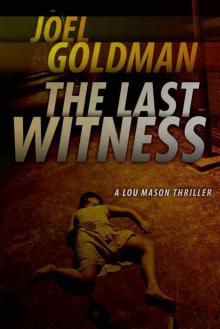 The last witness lm-2
The last witness lm-2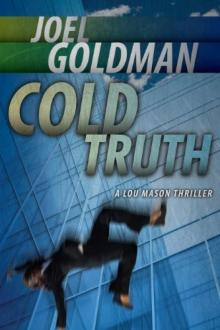 Cold Truth
Cold Truth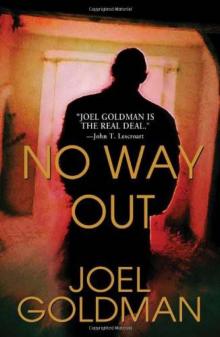 No Way Out (2010)
No Way Out (2010)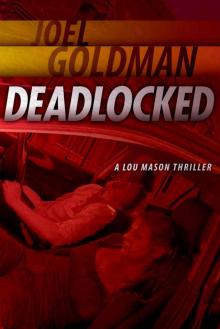 Deadlocked (Lou Mason Thrillers)
Deadlocked (Lou Mason Thrillers)![[Lou Mason 01.0] Motion to Kill Read online](http://i1.bookreadfree.com/i1/03/24/lou_mason_01_0_motion_to_kill_preview.jpg) [Lou Mason 01.0] Motion to Kill
[Lou Mason 01.0] Motion to Kill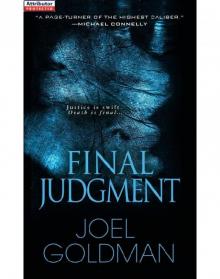 Final Judgment
Final Judgment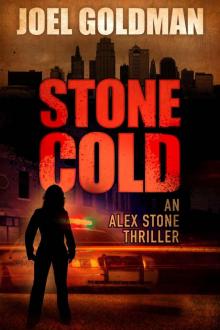 Stone Cold
Stone Cold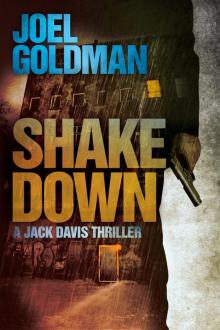 Shakedown
Shakedown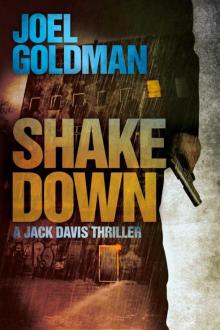 Shakedown jd-1
Shakedown jd-1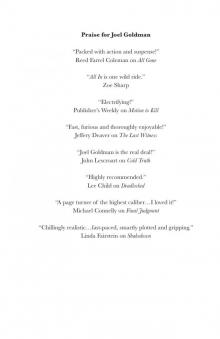 All Gone
All Gone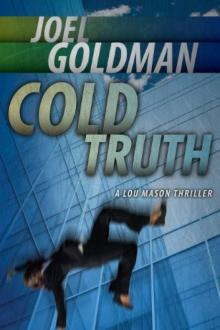 Cold truth lm-3
Cold truth lm-3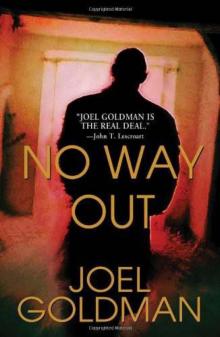 No way out jd-2
No way out jd-2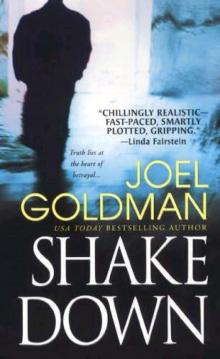 Jack Davis Mystery - 01 - Shakedown
Jack Davis Mystery - 01 - Shakedown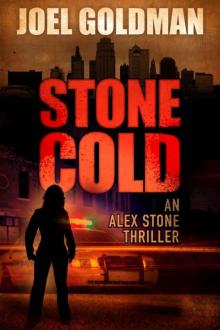 Stone Cold as-1
Stone Cold as-1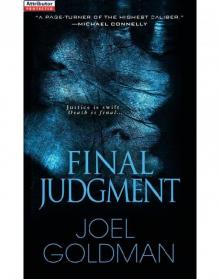 Final judgment lm-5
Final judgment lm-5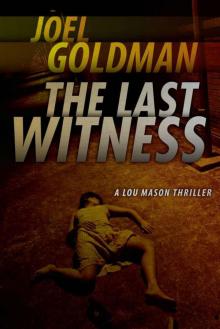 Lou Mason Mystery - 02 - The Last Witness
Lou Mason Mystery - 02 - The Last Witness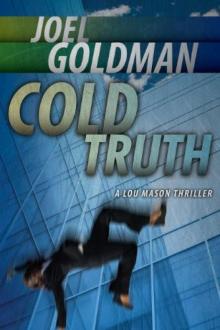 Lou Mason Mystery 03-Cold Truth
Lou Mason Mystery 03-Cold Truth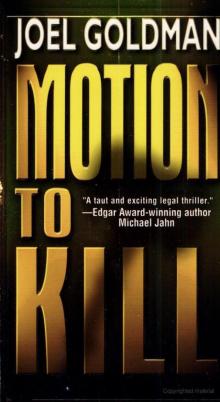 Motion to Kill
Motion to Kill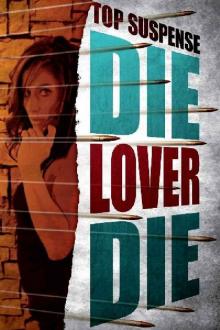 Die, Lover, Die!
Die, Lover, Die!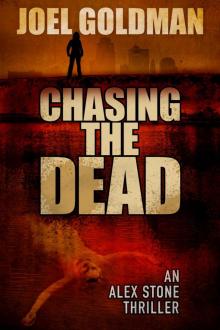 Chasing The Dead (An Alex Stone Thriller)
Chasing The Dead (An Alex Stone Thriller)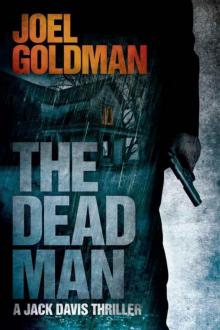 The Dead Man
The Dead Man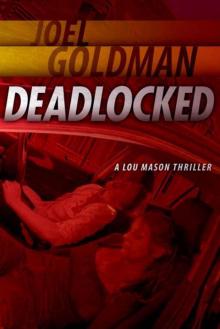 Deadlocked lm-4
Deadlocked lm-4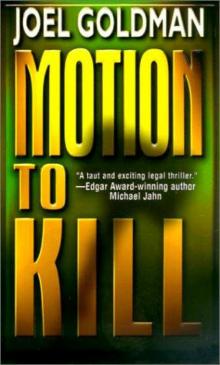 Lou Mason Mystery - 01 - Motion to Kill
Lou Mason Mystery - 01 - Motion to Kill Die, lover, die
Die, lover, die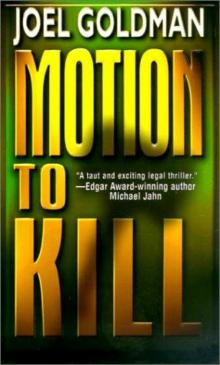 Motion to Kill lm-1
Motion to Kill lm-1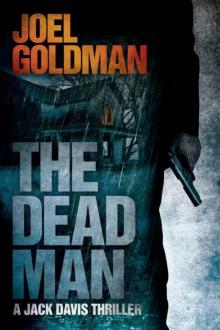 The Dead Man jd-3
The Dead Man jd-3